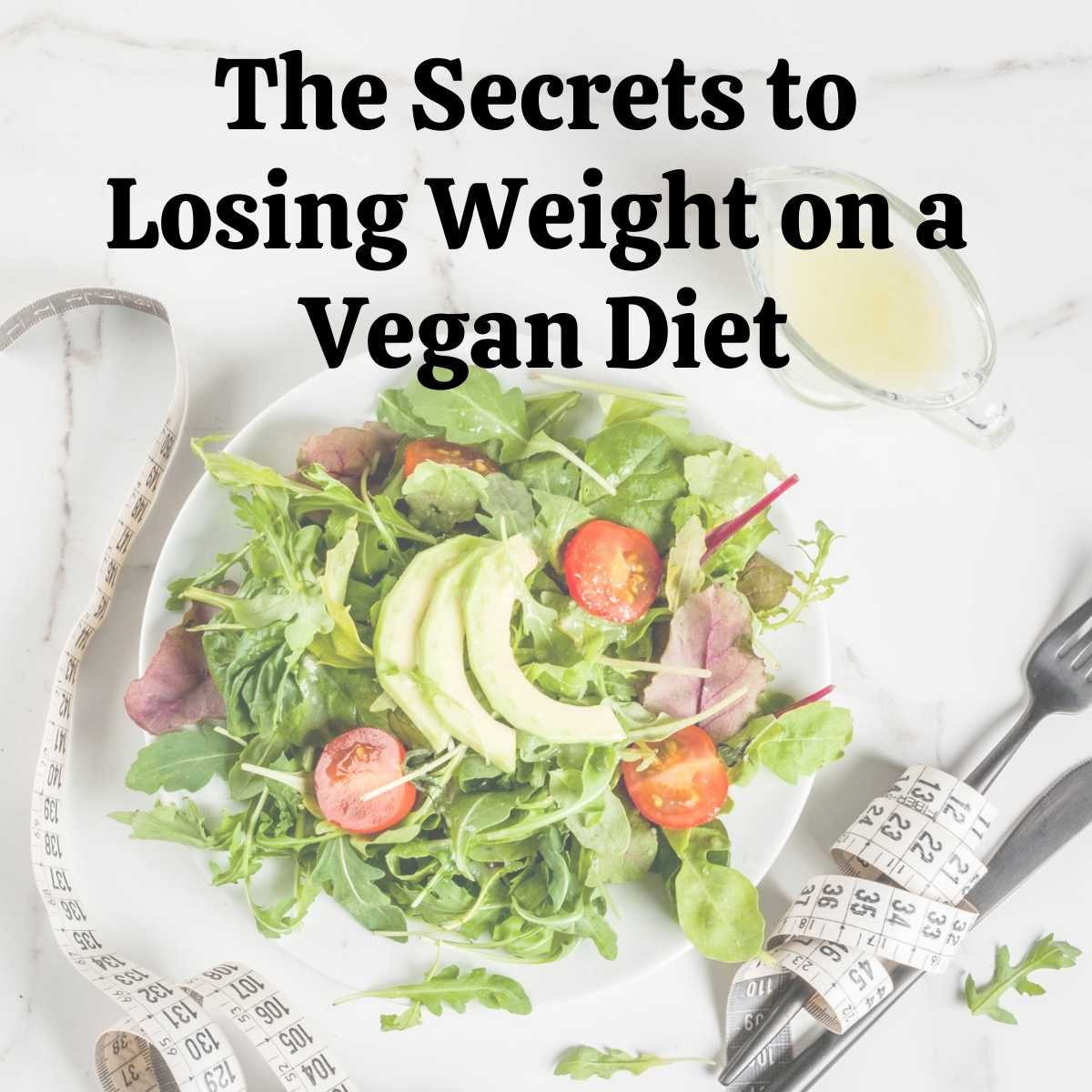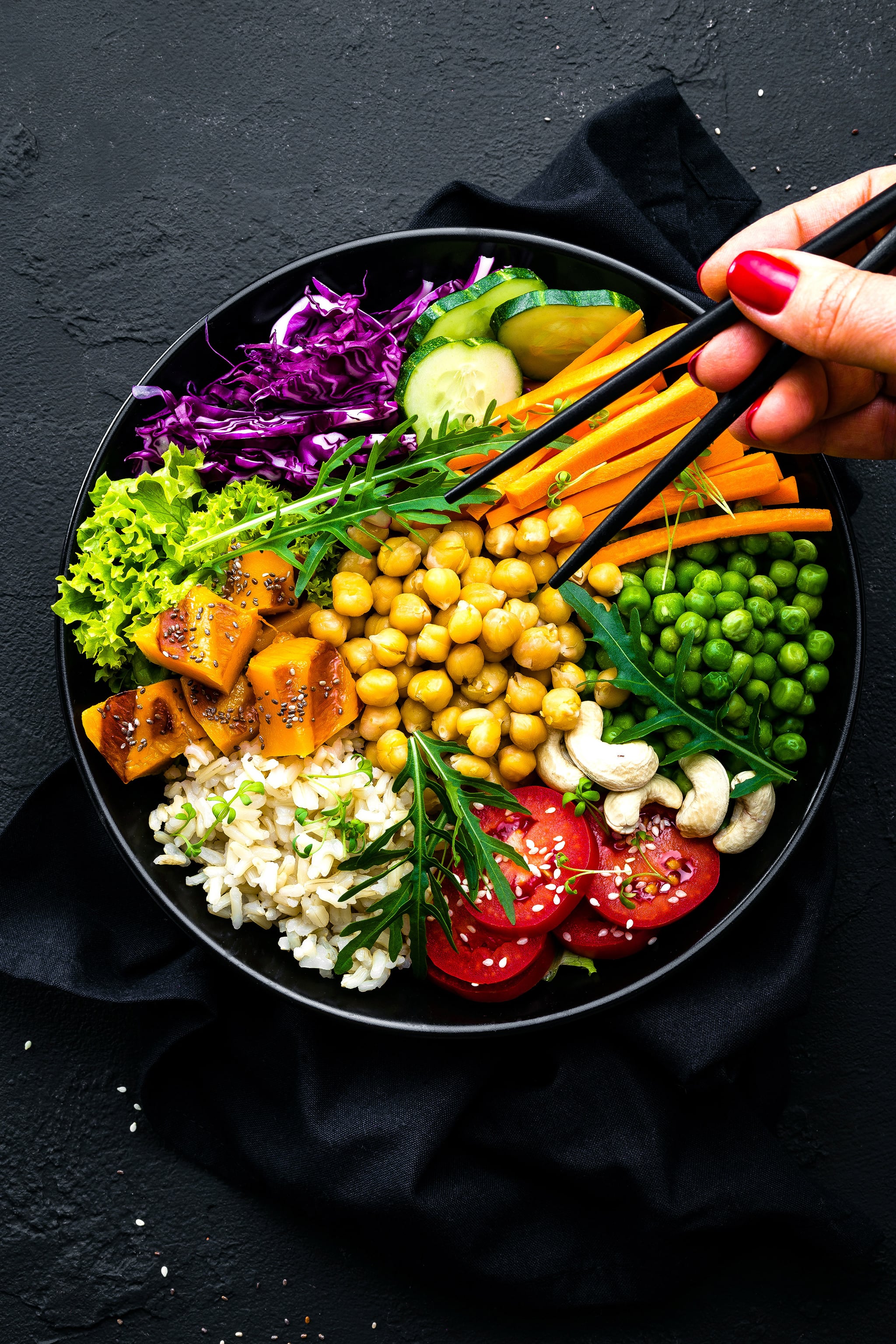In today’s health-conscious world, individuals are constantly seeking effective weight loss strategies. One approach that has gained significant attention is the adoption of a vegan diet. This article explores the question, “Is a Vegan Diet Effective for Weight Loss?” By examining factors such as its potential for high protein intake and investigating success stories, we aim to provide a comprehensive understanding of the efficacy of a vegan diet in achieving weight loss goals. Additionally, we will delve into the topic of how much weight one can expect to lose in a span of three weeks while following a vegan diet.

Benefits of a Vegan Diet for Weight Loss
High in Fiber
A vegan diet is typically high in fiber, which can be beneficial for weight loss. Fiber helps you feel fuller for longer, reducing the likelihood of overeating or snacking on unhealthy foods. It also aids in digestion and promotes regular bowel movements, supporting overall gut health. Some high-fiber vegan foods include fruits, vegetables, whole grains, legumes, and nuts.
Low in Calories
One of the key benefits of a vegan diet for weight loss is that it is generally lower in calories compared to a diet that includes animal products. Animal products, such as meat and dairy, tend to be higher in calories and saturated fats. By opting for plant-based alternatives, you can significantly reduce your caloric intake while still fulfilling your nutritional needs.
Rich in Plant-Based Protein
Contrary to common misconceptions, a vegan diet can provide an ample amount of protein, which is crucial for weight loss. Plant-based sources of protein include legumes, tofu, tempeh, seitan, quinoa, and hemp seeds. These sources of protein can help build and repair muscles, boost metabolism, and promote feelings of satiety.
Reduces Overall Caloric Intake
A vegan diet can contribute to weight loss by reducing overall caloric intake. Since plant-based foods are typically lower in calories than animal products, you can enjoy larger portions of fruits, vegetables, whole grains, and legumes without consuming excess calories. This reduced caloric intake can help create a caloric deficit, promoting weight loss.
Promotes Satiety
The high fiber and protein content in a vegan diet can promote satiety, making you feel fuller for longer periods. This can help curb hunger cravings and prevent overeating or unnecessary snacking throughout the day. By feeling more satisfied after meals, you are less likely to consume excessive calories, aiding in weight loss efforts.
The Role of Fiber in Vegan Weight Loss
Fiber and Weight Loss
Fiber plays a vital role in weight loss. It adds bulk to your diet, making you feel full without consuming excess calories. Additionally, high-fiber foods take longer to chew and digest, which contributes to a slower release of energy and helps regulate blood sugar levels. By including a variety of fruits, vegetables, whole grains, and legumes in your vegan diet, you can ensure an adequate intake of fiber for optimal weight loss.
High-Fiber Foods in a Vegan Diet
To incorporate high-fiber foods into your vegan weight loss diet, focus on consuming plenty of fruits and vegetables. Berries, apples, pears, broccoli, Brussels sprouts, and leafy greens are excellent choices. Additionally, whole grains like quinoa, brown rice, oats, and whole wheat bread are high in fiber. Legumes, such as lentils, chickpeas, and black beans, are also rich sources of fiber and can be enjoyed in soups, salads, or curries.

Caloric Intake and Vegan Weight Loss
Caloric Deficit for Weight Loss
To achieve weight loss, creating a caloric deficit is essential. This means consuming fewer calories than your body needs for daily maintenance. When following a vegan diet, it is easier to create a caloric deficit as plant-based foods are generally lower in calories. By carefully planning and monitoring your portions, you can ensure that you are consistently in a caloric deficit, promoting weight loss over time.
Lower Calorie Density in Vegan Foods
Vegan foods often have a lower calorie density compared to animal-based foods. Calorie density refers to the number of calories in a specific volume or weight of food. Fruits, vegetables, and whole grains are generally low in calorie density due to their high water and fiber content. These foods provide a larger volume of food for fewer calories, making it easier to feel satisfied while still being in a caloric deficit for weight loss.
Choosing Nutrient-Dense Vegan Foods
While it may be tempting to opt for processed vegan foods or rely solely on carbohydrates, it is crucial to choose nutrient-dense options when following a vegan weight loss diet. Nutrient-dense foods provide a high amount of nutrients relative to their calorie content. Include a variety of whole foods such as leafy greens, colorful vegetables, whole grains, legumes, nuts, and seeds in your vegan diet to ensure you are getting essential vitamins, minerals, and antioxidants without excessive calories.
Plant-Based Protein and Weight Loss
Benefits of Plant-Based Protein
Plant-based proteins offer several benefits for weight loss. Firstly, they are often lower in saturated fats compared to animal-based proteins, promoting cardiovascular health. Secondly, plant-based proteins are generally accompanied by fiber, which aids digestion and promotes satiety. Lastly, some plant-based proteins, like tofu and tempeh, can help boost metabolism due to their high protein content, leading to increased calorie burn and weight loss.
Sources of Plant-Based Protein in a Vegan Diet
A vegan diet can provide adequate protein through various plant-based sources. Legumes, including beans, lentils, and chickpeas, are excellent protein-rich options. Tofu, tempeh, and edamame are delicious plant-based protein sources that can be incorporated into stir-fries, salads, or sandwiches. Quinoa, amaranth, and buckwheat are whole grains that also offer a good amount of protein. Nuts and seeds, such as almonds, chia seeds, and hemp seeds, are additional protein sources that can be added to smoothies, oatmeal, or salads.

Effectiveness of a Vegan Diet for Weight Loss
Scientific Studies on Vegan Weight Loss
Numerous scientific studies have explored the effectiveness of a vegan diet for weight loss, with promising results. A study published in the Journal of General Internal Medicine found that individuals following a vegan diet experienced greater weight loss compared to those following a standard diet, even when both diets provided the same amount of calories. Another study published in Nutrients reported that individuals following a plant-based diet showed significant reductions in body weight, body mass index (BMI), and waist circumference.
Comparison to Other Diets
When comparing a vegan diet to other popular weight loss diets, such as the Mediterranean diet or low-carb diets, research suggests that a vegan diet can be equally or even more effective for weight loss. A study published in the Journal of the American College of Nutrition compared the effects of a low-fat vegan diet and a Mediterranean diet on weight loss and found no significant differences in weight loss between the two groups. However, the vegan group experienced greater improvements in insulin sensitivity and cholesterol levels.
Long-Term Weight Loss Maintenance
Sustainable weight loss is a key concern for many individuals. Long-term studies have shown that a vegan diet can effectively support weight loss maintenance. A study published in the Journal of the Academy of Nutrition and Dietetics concluded that individuals who followed a vegan diet for an extended period experienced greater weight loss maintenance compared to those on other diets. The long-term adherence to a vegan lifestyle was linked to better weight management outcomes.
Tips for Successful Vegan Weight Loss
Meal Planning and Preparing Ahead
Meal planning and preparing meals in advance can greatly contribute to successful vegan weight loss. By planning your meals ahead, you can ensure that you have nutritious and satisfying options readily available, reducing the temptation to opt for unhealthy, convenience foods. Set aside time each week to plan your meals, create a shopping list, and prepare ingredients or pre-cook meals that can be easily reheated when needed.
Portion Control
While vegan foods tend to be lower in calories, portion control is still essential for weight loss. Be mindful of your portion sizes, even when consuming plant-based foods. It can be helpful to use measuring cups, a food scale, or visual cues to ensure appropriate portion sizes. Overeating, even with healthy plant-based foods, can hinder weight loss progress.
Incorporating Physical Activity
Physical activity is a crucial component of any weight loss journey. Alongside a vegan diet, regular exercise can accelerate weight loss, improve overall fitness, and enhance overall well-being. Consider incorporating a variety of exercises, such as cardiovascular workouts, strength training, and flexibility exercises, into your routine. Find activities you enjoy to ensure adherence and make your weight loss journey more enjoyable.

Considerations and Challenges of a Vegan Diet for Weight Loss
Potential Nutrient Deficiencies
One consideration when following a vegan diet for weight loss is the risk of potential nutrient deficiencies. Some nutrients commonly found in animal products, such as vitamin B12, iron, calcium, and omega-3 fatty acids, can be more challenging to obtain in adequate amounts on a vegan diet. However, with proper planning and a varied, balanced diet, it is possible to meet your nutrient needs through vegan sources or supplements.
Getting Adequate Micronutrients
To ensure you are getting adequate micronutrients on a vegan weight loss diet, it is important to consume a wide variety of plant-based foods. Include a rainbow of fruits and vegetables to obtain a wide range of vitamins, minerals, and antioxidants. Consider incorporating fortified plant-based milk or cereals to ensure sufficient intake of calcium and vitamin D. If needed, consult with a registered dietitian or nutritionist to develop a personalized meal plan and potentially consider supplements.
Eating Out and Social Situations
Eating out or attending social occasions can present challenges when following a vegan diet for weight loss. Many restaurants now offer vegan-friendly options, but it may still require careful menu selection and customization. In social situations, it can be helpful to communicate your dietary preferences in advance or offer to bring a vegan dish to share. Being prepared and proactive can help you navigate these situations while staying on track with your weight loss goals.
Sample Vegan Weight Loss Meal Plan
Breakfast Options
- Overnight oats made with rolled oats, almond milk, chia seeds, and topped with fresh berries and a sprinkle of nuts.
- Tofu scramble with mixed vegetables, seasoned with turmeric, cumin, and nutritional yeast, served with whole wheat toast.
- Green smoothie made with spinach, banana, almond milk, and a scoop of vegan protein powder.
Lunch Options
- Chickpea salad wrap with mashed avocado, diced vegetables, and lemon-tahini dressing, wrapped in a whole wheat tortilla.
- Quinoa salad with roasted vegetables, mixed greens, and a balsamic vinaigrette.
- Lentil soup with a side of mixed green salad dressed with a lemon-mustard vinaigrette.
Dinner Options
- Stir-fried tofu and vegetables with tamari sauce, served over brown rice or quinoa.
- Vegan chili made with kidney beans, black beans, diced vegetables, and spices, served with a side of steamed broccoli.
- Spaghetti squash with marinara sauce, topped with vegan meatballs and a sprinkle of nutritional yeast.
Snack Ideas
- Carrot sticks with hummus dip.
- Apple slices with almond butter.
- Roasted chickpeas seasoned with chili powder and cumin.
- Vegan protein bar or energy balls made with dates, nuts, and seeds.

Success Stories on Vegan Weight Loss
Real-Life Experiences
Many individuals have successfully lost weight on a vegan diet and shared their experiences. Real-life stories and testimonials often highlight the positive effects of a vegan diet on weight loss. People may report increased energy levels, improved digestion, and sustainable weight loss over time. These stories provide inspiration and motivation for those embarking on a vegan weight loss journey.
Before and After Transformations
Before and after transformations are powerful visual representations of the impact of a vegan diet on weight loss. These transformations showcase the physical changes individuals have experienced, including weight loss, improved body composition, and enhanced overall well-being. Before and after photos can serve as inspiration and motivation for individuals looking to achieve similar results.
Conclusion
In conclusion, a vegan diet can be an effective approach for weight loss while promoting overall health and well-being. The high fiber content, low calorie density, and plant-based protein sources in a vegan diet contribute to increased satiety, reduced caloric intake, and sustained weight loss. Scientific studies have shown that vegan diets can be equally or more effective than other diets for weight loss, with the added benefit of long-term weight loss maintenance. By considering the potential challenges, planning meals, practicing portion control, and incorporating physical activity, successful vegan weight loss can be achievable and sustainable.

